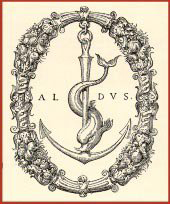When green buds they are swelling
“In Scarlet town, where I was born,
There was a fair maid dwelling,
Made every youth cry ‘Well away!’
Her name was Barbara Allen.
All in the merry month of May,
When green buds they are swelling,
Young Jimmy Green on his death bed lay
For the love of Barbara Allen.”
—Barbara Allen, the first verses of a version from West Virgina, published in 1925; The Viking Book of Folk Ballads of the English-Speaking World, edited by Albert B. Friedman, 1956.
have you brought me silver?
“‘Dear girl, have you brought me silver?
Dear girl, have you brought me gold?
Have you walked these long, long miles
To see me hanged upon the hangman’s pole?’
‘Dear boy, I’ve brought you silver,
Dear boy, I’ve brought you gold;
I have not walked these long, long miles
To see you hanged upon the hangman’s pole.’
She took me from the scaffold;
She untied my hands;
The tears ran down the poor girl’s cheeks:
‘I love this highway man.’”
Fields of Hope
O, give me hold [of] your lily-white finger
“O, give me hold [of] your lily-white finger,
the nut-browne bride
“And he has till his brother gane:
Four and twanty siller bells
“The horse fair Annet rade upon,
He amblit like the wind;
Wi’ siller he was shod before,
Wi’ burning gowd behind.
Four and twanty siller bells
Wer a’ tyed till his mane,
And yae tift o’ the norland winde,
They tinkled ane by ane.”
—Lord Thomas and Fair Annet, a Scottish ballad, as published in 1765, The Viking Book of Folk Ballads of the English-Speaking World, edited by Albert B. Friedman, 1956.
tell me what is greener
“And tell me what is greener
Than the grass on yonder hill
And tell me what it crueller
Than a wicked woman’s will. . . .
I know a deadly poison, greener
Than the grass on yonder hill;
And a foul fiend is crueller
Than a wicked woman’s will.”
—Riddles Wisely Expounded, published in Maine in 1937, The Viking Book of Folk Ballads of the English-Speaking World, edited by Albert B. Friedman, 1956.
red blude to the knee
“For forty days and forty nights
He wade thro red blude to the knee,
And he saw neither sun nor moon,
But heard the roaring of the sea.”
—Thomas Rymer, published in Scotland in 1806, The Viking Book of Folk Ballads of the English-Speaking World, edited by Albert B. Friedman, 1956.
Festina Lente
 “Between 1500 and 1533, the great humanist Erasmus compiled his Adagia, a collection of some 4,251 classical proverbs and commonplaces with a rich scholarly commentary—a truly astonishing achievement. One of his most well-known adages was ‘Festina Lente’ or hasten slowly. Aldus adopted it for a slogan, its visual counterpart being an emblem of dolphin and anchor, which he used as a printer’s mark. Erasmus suggests a possible origin for the expression in a witty inversion of the Greek σπεύδε ταχέως, ‘hasten hastily’, found in Aristophanes’ The Knights. It is most famous as the official motto of the Roman emperors Augustus and Titus; Erasmus thus dubs it the ‘royal proverb’, and remarks that it advocates ‘a wise promptness together with moderation, tempered with both vigilance and gentleness, so that nothing is done rashly and then regretted, and nothing useful to the common weal omitted out of carelessness’. It represents, in short, the reining of passion by reason, Plato’s ideal of statecraft—it is the paragon of proverbs.”
“Between 1500 and 1533, the great humanist Erasmus compiled his Adagia, a collection of some 4,251 classical proverbs and commonplaces with a rich scholarly commentary—a truly astonishing achievement. One of his most well-known adages was ‘Festina Lente’ or hasten slowly. Aldus adopted it for a slogan, its visual counterpart being an emblem of dolphin and anchor, which he used as a printer’s mark. Erasmus suggests a possible origin for the expression in a witty inversion of the Greek σπεύδε ταχέως, ‘hasten hastily’, found in Aristophanes’ The Knights. It is most famous as the official motto of the Roman emperors Augustus and Titus; Erasmus thus dubs it the ‘royal proverb’, and remarks that it advocates ‘a wise promptness together with moderation, tempered with both vigilance and gentleness, so that nothing is done rashly and then regretted, and nothing useful to the common weal omitted out of carelessness’. It represents, in short, the reining of passion by reason, Plato’s ideal of statecraft—it is the paragon of proverbs.”
—Conrad H. Roth, from the post Festina Lente at his blog Varieties of Unreligious Experience.
the River of the Dead of the Choctaws
“The paths made by deer and bear became roads and then highways, with towns in turn springing up along them and along the rivers Tallahatchie and Sunflower which joined and became the Yazoo, the River of the Dead of the Choctaws—the thick, slow, black, unsunned streams almost without current, which once each year ceased to flow at all and then reversed, spreading, drowning the rich land and subsiding again, leaving it still richer.”
—William Faulkner, ‘Delta Autumn’, Go Down, Moses, 1942.
